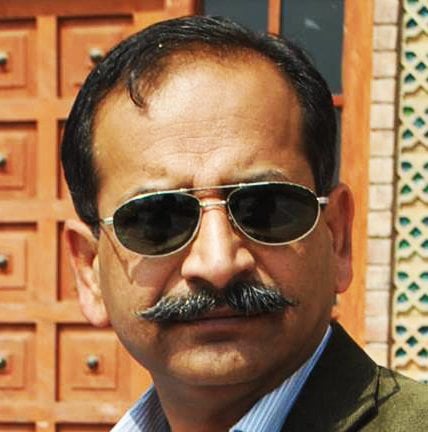ALI SUKHANVER

Though establishment and bureaucracy are two quite different entities but some people mix them up because of their lack of knowledge. Both these terms are very frequently used particularly in the third world countries like Pakistan, Bangladesh and India and unfortunately most of the time, in a negative context. The term Establishment is usually specified for the military establishment in Pakistan; for the civil establishment people here use the term ‘bureaucracy’. Grammatically the word ‘establishment’ is a noun and generally it denotes a dominant group of elites that holds power or authority in a nation or organization. According to the Cambridge Dictionary, Establishment is in fact a group of the important and powerful people who control a country or an organization, especially those who support the existing situation. Henry Fair, a well-known British journalist of 1950s says, ‘the Establishment means a network of prominent and well-connected people’. According to the Wikipedia, ‘The term Establishment is most often used in the United Kingdom. In different contexts it may include leading politicians, senior civil servants, senior barristers and judges, aristocrats, Oxbridge academics, senior clergy in the established Church of England, the most important financiers and industrialists, governors of the BBC, and the members of and top aides to the royal family.’ In short, the term Establishment may be explained as a closed social group which selects its own members, either in government or in specific institutions.
On the other hand the term ‘bureaucracy’ has somewhat different meanings. It is also a noun referring to a system of government in which most of the important decisions are taken by state officials rather than by elected representatives. Bureaucrats are the gadgets which provide a direct support and assistance in running the machinery of a government though most of the times they do not succeed in earning public appreciation, particularly in countries like Pakistan and India. A very logical and informative article of Devendar appeared on different web pages last year. The title of that write-up was ‘Role of Bureaucracy in India’. The writer said, “In India the dependence of the ministers on the civil servants develops a sort ‘dictatorship’ of the bureaucracy. In India, bureaucrats often become inefficient and even resist to positive changes in state policies. Yet with all these defects, the bureaucracy is an institution without which democratic governments cannot work. Bureaucracy may be reformed but cannot be done away with.”
A very interesting fact is that most of the users of these two terms ‘establishment and bureaucracy’ don’t know the real meanings of these terms and they even don’t know whom they are talking about while using these terms. They don’t know even about the sphere in which the constitution allows these two to work. For instance, now-a-days a few politicians in Pakistan are raising their voices against the alleged silent move of abolishing Eighteenth Amendment from the Constitution of Pakistan. They are blaming the ‘establishment’ for supporting the elements going against the Eighteenth Amendment. The fact of the matter is that abolishing of 18th amendment is a parliamentary matter and has got nothing to do with the establishment or the bureaucracy. Pakistan is a purely democratic country; here people have all authority to vote for the best option according to their own will and choice and as a result of it their own chosen representatives reach the Parliament. Any change in the Constitution is the right of the Parliament not of the so-called establishment or bureaucracy. In so many of the cases, the ruling party has to get help and support from the opposition parties if some change in the constitution is required; the ruling party never seeks support from the establishment or bureaucracy. Doing amendments in the constitution is totally out of jurisdiction of these two.
It is not for the first time that the guns of blames and allegations are targeting directly the establishment and indirectly the bureaucracy; from the results of the previous national elections and the change of government to the working of the National Accountability Bureau and formulation of different Joint Investigation Teams, the establishment and bureaucracy have always been dragged into the scenario which never belonged to them. Unfortunately some of the ‘innocent’ analysts have been trying to find traces of these two even behind different judicial decisions. In their heat and haste such analysts forget that by doing so they are simply maligning the unquestionable honesty and unchallenged impartiality of the honourable courts. Such non-sense attitude is distorting the image of Pakistan all over the world. ‘Bureaucracy is the basis for the systematic formation of any organization and is designed to ensure efficiency and economic effectiveness,’ says Max Weber, the world renowned German sociologist, philosopher, jurist, and political economist who died in 1920. And the same philosophy could lead us to the right path with reference to the role of establishment.